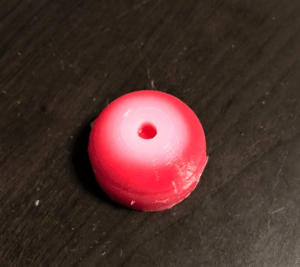Hello everyone! Welcome to my Rice 360 Blog!
This is my first blog post, so let me introduce myself. My name is Kyla Barnwell and I am a rising junior at Jones college majoring in Cognitive Sciences and minoring in Global Health Technology (GLHT). I was fortunate enough to have the opportunity to travel to Blantyre, Malawi with Rice 360 this summer and we leave in a little over 3 weeks!!! It’s finally happening! The closer our departure date arrives (June 3rd), the more excited and nervous I am to start this amazing experience. Between getting all of our technologies and materials ready for departure and making sure all the other affairs (flights, vaccines, passports) are in order, I have been really busy getting ready to leave.
These past two weeks, our team of Malawi interns have been working in the Oshman Engineering Design Kitchen (OEDK) on Rice’s campus building and prototyping the necessary materials in order to make some of the technologies we will be taking over to the Polytechnic Institute and the Queen Elizabeth Central Hospital. We are taking a slew of technologies including: a mechanism to lock IV drip rates, an automatic bleach sterilization machine, a neonatal temperature monitor for Kangaroo Mother Care, a training model for determining the Ballard Score Gestational Age, a cervical thermocoagulation training model, low-cost ostomy bags, a low-cost oxygen monitoring system, and reusable phototherapy masks.
One of the technologies we are taking is one that my own team has personally designed which I am very proud of. During one of our classes last semester, our team developed a model cervix that can be used train providers in a new cervical cancer treatment technique called thermocoagulation, which is essentially burning any cervical tissue lesions found on the cervix that might develop into cervical cancer. Our team worked extremely hard developing this model and we are amazed to see it actually going over to places like Malawi, Brazil, and Mozambique to get more design feedback and eventually, be used to train providers in this potentially life saving technique. At the OEDK, we worked on 3D printing the molds used make the model cervices and once our ordered materials arrive, we will get to work developing some prototypes very quickly in the next few days. The Brazil team is looking to take around 5 model cervices while we will be mainly making around 20 model cervices prototypes when we are in Malawi. I have also had the chance to learn more about 3D printing software, laser cutting, and other cool OEDK technologies that I have really not had previous exposure to. Since I am not in an engineering major, it has been very cool to watch and learn how to use some of these advanced prototyping tools and software. It was also really cool to learn how to develop a lot of the other innovative technologies we are bringing. I had been exposed to them through peer presentations in our GLHT course, but actually hands-on learning and seeing how each part is made and how it works has been so much more informative. All of the other interns have been really helpful in every project and I have really loved bonding with everyone at dinners and team meeting luncheons.

While in Malawi, Liseth (another Malawi intern) and I will be working together at the Queen Elizabeth Central Hospital. Our project mentor, Dr. Claudia Aceyman, has tasked us with some very important assignments concerning valuable human factors work and data collection. While in the hospital, Liseth and I are going to be documenting the use environment pretty extensively. This means we will be taking notes on hospital dynamics and interactions, how the environment changes from the perspectives of a doctor versus a nurse versus a patient or family member, and of course, looking into how users interact with our designed technologies and assessing how we can improve in order to best fit the needs of the user. Liseth and I have been reading a ton of articles, journals, and books on human factors research in order to decide how we can best compile and organize all of our findings. We are also looking to develop a survey/interview format that can be used to gauge usability for the Incubaby Neonatal Incubator technology (but also can be applied to other technologies as well). We are brainstorming appropriate questions to ask users while they interact with the technology. We will need to take note specifically of human behavior, abilities, limitations, cognitive resources, and other characteristics to the design of systems, tasks, and equipment/technologies that we are bringing.
Between prototyping, packing, ensuring I have the right anti-malaria pills and vaccines, and the upcoming 15 hour flight from JFK to Johannesburg, it seems as though I already have a lot in store for me in these upcoming weeks. I definitely have a lot more in store for me once I arrive in Malawi. This trip will be the farthest from home I have ever traveled in my life, so I am a little nervous. I really hope things go very smoothly but there’s always small hiccups to be prepared for when traveling. I am glad I get to see my family back home in Atlanta, Georgia for a little while before I head off abroad. I’ve really missed a good home-cooked meal. Stay tuned for more updates!